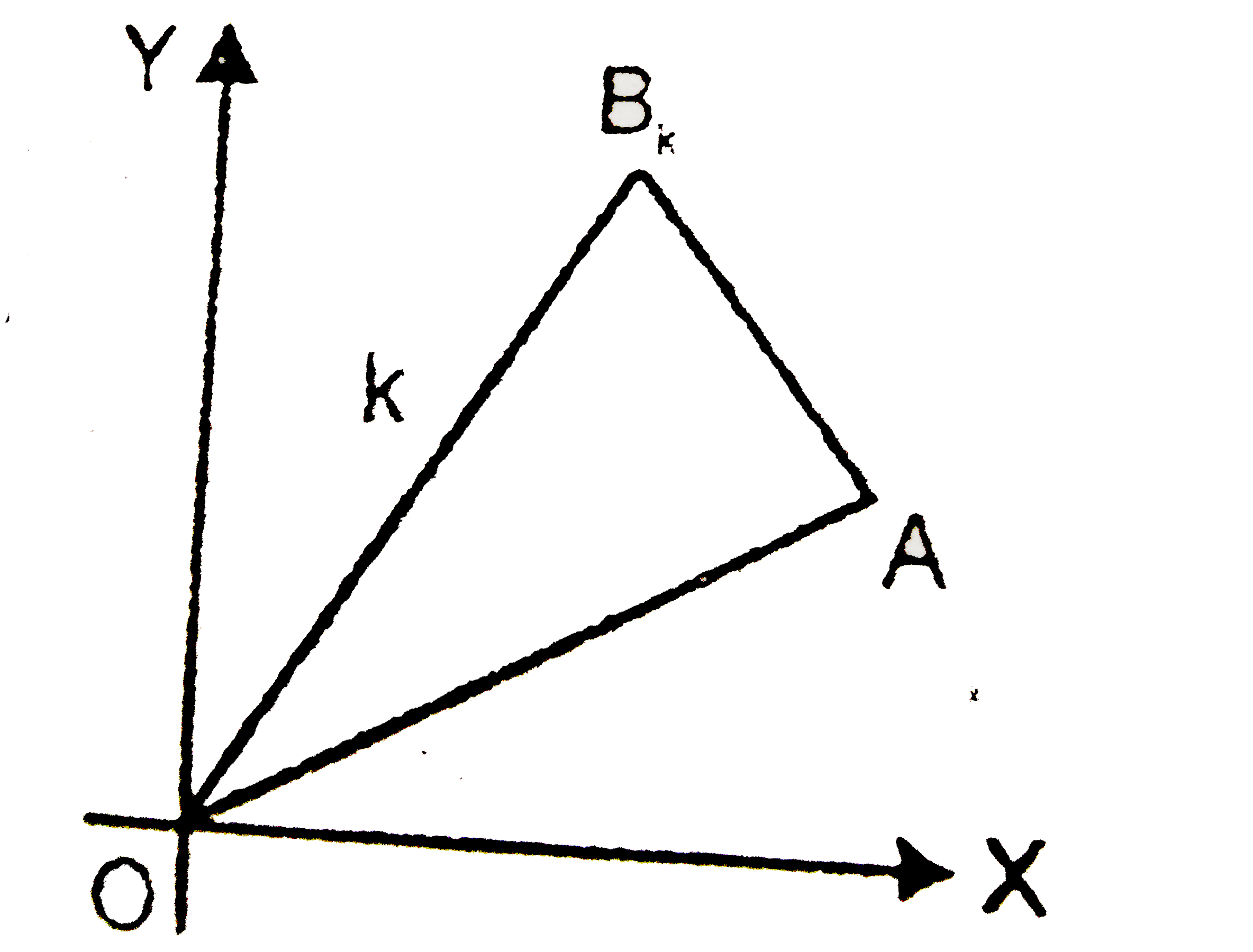For positive integers k=1,2,3,....n,, let Sk denotes the area of △AOBk such that ∠AOBk=kπ2n, OA=1 and OBk=k The value of the limn→∞1n2n∑k−1Sk is
Video Solution
Text Solution
The correct Answer is:0

OBk=k,∠AOBk=kπ2n
Sk=12ksinkπ2n (using Δ=12∣∣∣∫∣∣∣hη)
∴L=limn→∞1n2n∑k=1Sk=k2n2∞∑k=1sinkπ2n
=12n∞∑k=1knsinkπ2n=12∫10x.sinπx2dx
=12[−2π×cosπx2∣10+2π∫10cosπx2dx]
=12[0+2π.2π(sinπx2)10]=2π
|
Topper's Solved these Questions
Similar Questions
Knowledge Check
The value of limx→∞n∑k=1(kn2+n+2k)=
A14B13C12D1Consider a parabola y=x24 and the point F(0,1).
Let A1(x1,y1),A1(x2,y2),A3(x3,y3),.....,An(xn,yn) are 'n' points on the parabola such xk>−and∠OFAk=kπ2π(k=1,2,3,......,n). Then the value of limn→∞1nn∑k=1FAk, is equal to :A2πB4πC8πDNone of theseConsider a parabola y=x24 and the point F(0,1).
Let A1(x1,y1),A1(x2,y2),A3(x3,y3),.....,An(xn,yn) are 'n' points on the parabola such xk>−and∠OFAk=kπ2π(k=1,2,3,......,n). Then the value of limn→∞1nn∑k=1FAk, is equal to :A2πB4πC8πDNone of these
The value of limn→∞n∑k=1log(1+kn)1n,is
View SolutionFind the value of limn→∞n∑k=1k2+k−1(k+1)!.
View SolutionThe value of limn∑k=1n−kncos(4kn) equals to
View SolutionThe sum of n positive integers k1,k2,k3,……..,kn is an even number, then number of odd integers involve in the expression is :
View SolutionIf m and n are positive integers and (m – n) is an even number, then (m2−n2) will be always divisible by
View Solution
